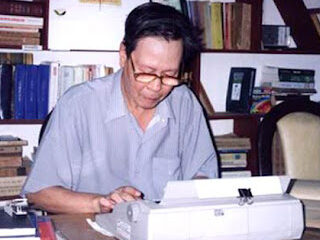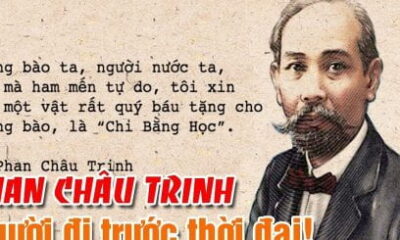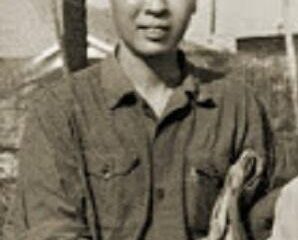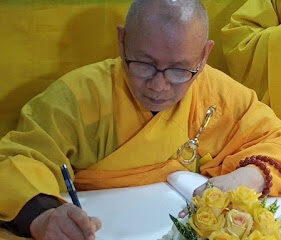Editor’s Note: This article was originally published on US-Vietnam Review on 4/7/23. This version was translated by Vinh Phu Pham.
The webinar entitled “Capitalism with Vietnamese Characteristics? The Dilemma of Growth and Political Change” featured a discussion by Professor Tuong Vu and Dr. Nhu Truong on the various factors hindering Vietnam’s economic potential, as well as the importance of understanding Vietnam’s path of development, economic models and their susceptibility to damage, and the tightly controlled economic and social system under the Vietnamese Communist Party (VCP). The discussion also examined how historical, institutional, and political factors have impacted the current challenges that the country faces.
The webinar was held by the ISEAS – Yusof Ishak Institute on Friday, March 24, 2023 as part of their research program on Vietnam. The talk was given by Professor Tuong Vu, the Head of the Department of Political Science at the University of Oregon, and Dr. Nhu Truong, an Assistant Professor in the Department of Political Science and Public Affairs at Denison University.
Professor Vu began the discussion by addressing recent political turmoil in Vietnam, including the resignations of high-ranking officials such as Deputy Prime Ministers Pham Binh Minh and Vu Duc Dam, and President Nguyen Xuan Phuc. These leadership changes were reportedly linked to two major corruption scandals: the government-sponsored repatriation flights for Vietnamese citizens during the Covid-19 pandemic, and the Covid-19 testing scandal involving the Viet A Company.
Professor Vu then linked the persistence of corruption to the development path of Vietnam. He provided an overview of the various factors that contributed to the country’s economic development. However, despite impressive economic growth rates, Vietnam still lags behind neighboring countries in terms of GDP, per capita income, and productivity. Vietnam mainly relies on foreign direct investment, official development assistance, and remittances as the primary sources of capital inflow into the economy. Although it has a highly open economy, Vietnam mainly assembles products from South Korea and China for re-export to Europe and the United States, placing Vietnam at the bottom of the global value chain. Furthermore, Vietnam’s state-owned economic sector operates much less efficiently than foreign-owned and private companies.
Professor Vu then discussed Vietnam’s economic development strategy and its fundamental political drivers. Vietnamese leaders have long sought to bring the country on par with South Korea and other advanced countries, but political considerations have hindered these aspirations. In particular, the scope of Vietnam’s economic reforms has deliberately been limited to prevent any challenges to the Communist Party of Vietnam.
According to Professor Vu, Vietnam’s development philosophy differs from that of South Korea in three aspects. First, South Korea has a successful private sector and self-sufficiency, while Vietnam supports state-owned enterprises. Second, South Korea has an administrative system that operates based on performance-based selection, while Vietnam prioritizes political loyalty. Third, South Korea operates in a capitalist system, while Vietnam still adheres to its socialist principles.
Then, Professor Vu introduced four concepts developed by different scholars that researchers can use to better understand the reality of Vietnam’s economic system.
The first concept, “red crony capitalism,” refers to the close relationship between members of the Communist Party of Vietnam and business owners.
The second concept, “predatory party-state,” describes a state that exploits resources without providing enough benefits to society. Examples of this include two recent scams targeting vulnerable citizens, namely the “rescue flight” and “Viet A case.”
The concept of Professor Vu’s development philosophy in Vietnam differs from South Korea in three points. Firstly, South Korea has a successful private sector and self-sufficiency, while Vietnam supports state-owned enterprises. Secondly, South Korea has an administrative system that operates based on performance selection, while Vietnam prioritizes political loyalty. Thirdly, South Korea operates in a capitalist system, while Vietnam still adheres to its socialist principles.
Then, Professor Vu introduced four concepts developed by different scholars that researchers can use to better grasp the reality of Vietnam’s economic system.
The first concept, “red crony capitalism,” refers to the close relationship between members of the Communist Party of Vietnam and business owners.
The second concept, “predatory party-state,” describes a state that exploits resources without providing enough benefits to society. Examples of this include two recent fraud cases targeting vulnerable citizens, namely the “rescue flight” and the “Viet A case.”
The third concept, “crime syndicate,” compares state-building to organized crime. This perspective suggests that the process of forming Vietnam’s state operates like a “protection racket,” where powerful individuals provide protection services in exchange for taxes and land.
Finally, “dependency development” highlights the role of foreign capital in Vietnam’s economic development, facilitated by the cooperation between foreign multinational companies and state production areas.
Professor Vu concluded his presentation by suggesting that Vietnam should adopt a development system similar to South Korea’s. This will involve privatizing state-owned enterprises, establishing an authorized administrative system, and liberalizing the economy, society, and ultimately politics.
In her presentation, Dr. Nhu Truong explored the complex relationship between economic growth, politics, and society in Vietnam. Based on Samuel Huntington’s “gap hypothesis,” she proposed three distinct processes.
Firstly, economic growth can lead to social discontent when there is an imbalance between “social mobility” and the high level of economic development. Social mobility, also known as “social mobility,” is a sociological concept that refers to the change in position within the social stratification system between individuals, social groups in the overall social structure, under the influence of changes in the economy or politics.
Secondly, social disappointment when there is no opportunity for “social mobility” can lead to increased participation in political activities.
Finally, political instability can occur when political institutions fail to meet social needs and provide appropriate channels for political participation.
According to the analysis of Dr. Nhu Truong, three processes have occurred in the context of Vietnam. She explains that although the country has achieved high economic growth, it still fails to meet the aspirations of some groups, leading to social disappointment. For example, although the minimum wage has increased, income inequality is still increasing in Vietnam, causing many workers to struggle to make a living.
Social disappointment in Vietnam has led to increased political participation, with four separate waves occurring from 1995 to 2015.
In the first stage (mid to late 1990s), the main expressions were anonymous and isolated, with minimal coordination.
In the second stage (2001 to 2003), there were more positive activities and open dissent, facilitated by the emergence of new online channels.
The third stage (2006) saw an increase in political organization. The fourth stage (2006 to 2015) was marked by a significant increase in political blogs and websites, reflecting the lively and dynamic political context in Vietnam.
There were other notable developments, such as the 2016 self-nomination movement and the 2018 protests against the draft Special Economic Zone Law.
Dr. Truong noted that the government’s refusal to respond to calls for greater political participation has led to political instability. This is reflected in recent arrests of dissenters and activists, as well as the deadly 2020 conflict between the government and Dong Tam residents over land disputes.
According to Dr. Truong, Vietnam’s political development should not be left behind, especially when facing rapid changes in the economy and society. Instead of using coercive or legal measures to suppress social discontent and political participation, Vietnam’s political institutions need to respond more to the needs and aspirations of its people.
During the Q&A session, the two speakers discussed various topics, including the differences between Vietnam’s and China’s development strategies, the reaction of the Communist Party of Vietnam to increased political participation and control of the private sector, potential solutions to increase citizen participation in Vietnam, strategies to prevent Vietnam from falling into the middle-income trap, prospects for professionalizing the administrative apparatus and liberalizing Vietnam’s political system, and the impact of culture on Vietnam’s development.
ISEAS – Yusof Ishak Institute

 Politics & Economy3 years ago
Politics & Economy3 years ago
 Society & Culture4 years ago
Society & Culture4 years ago
 ARCHIVES4 years ago
ARCHIVES4 years ago
 Politics & Economy3 years ago
Politics & Economy3 years ago
 Politics & Economy4 years ago
Politics & Economy4 years ago
 Politics & Economy3 years ago
Politics & Economy3 years ago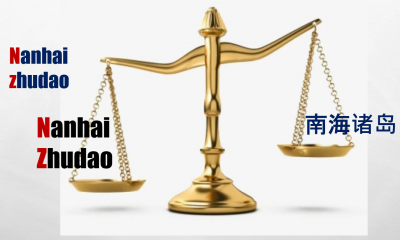
 Politics & Economy4 years ago
Politics & Economy4 years ago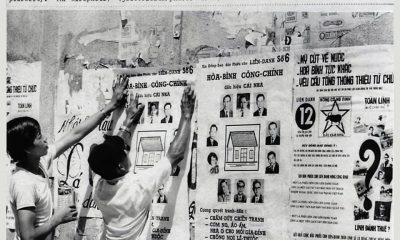
 ARCHIVES3 years ago
ARCHIVES3 years ago




